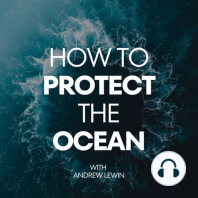16 min listen

Canada's Federal Plastics Registry: Tracking the Life Cycle of Plastics
Canada's Federal Plastics Registry: Tracking the Life Cycle of Plastics
ratings:
Length:
16 minutes
Released:
Jan 5, 2024
Format:
Podcast episode
Description
Andrew Lewin discusses the Canadian government's efforts to tackle plastic pollution. He explains that the government has implemented a ban on certain single-use plastics and is now planning to create a federal plastics registry. The registry will require companies to track and report their plastic production, as well as the lifecycle of their products. This will help to hold companies accountable for their plastic waste and move Canada towards a circular economy for plastics. Andrew highlights the importance of tracking and managing plastics, as the majority of plastic waste in Canada ends up in landfills or the natural environment. He also discusses the potential economic impact of the registry on companies. Overall, Andrew believes that the federal plastics registry is an important tool for addressing plastic pollution and encourages listeners to share their thoughts on the issue. Link to article: https://www.ctvnews.ca/climate-and-environment/feds-open-plastics-registry-consultations-in-move-to-eventually-track-waste-1.6708502 Follow a career in conservation: https://www.conservation-careers.com/online-training/ Use the code SUFB to get 33% off courses and the careers program. Facebook Group: https://bit.ly/3NmYvsI Connect with Speak Up For Blue: Website: https://bit.ly/3fOF3Wf Instagram: https://bit.ly/3rIaJSG Twitter: https://bit.ly/3rHZxpc The Canadian federal government has taken a significant step towards addressing plastic pollution by calling for the establishment of a plastics registry. This registry aims to track the companies and types of plastics they produce, as well as monitor their lifecycle within the marketplace and their final destinations after use. The purpose of this registry is to regulate plastics more effectively and reduce plastic pollution in Canada. Plastic pollution is a pressing issue that affects not only Canada but also the entire world. Plastics have permeated every part of the ocean, with microplastics found in both surface and deep-sea waters. This widespread pollution has harmful effects on marine animals, water chemistry, and human health. Recognizing the severity of the problem, various countries, including Canada, have been implementing policies and regulations to control plastic production and usage. The Canadian government's efforts to tackle plastic pollution began in 2018 when they announced plans to ban certain single-use plastics, such as straws, utensils, and coffee stir sticks. These bans are being phased in gradually, and by 2022, these items will no longer be allowed to be imported, exported, or produced in Canada. These bans were made possible by classifying plastics as toxins under the Canadian Protections Act, giving the government the authority to regulate them. However, a recent court ruling challenged the classification of plastics as toxins, but the ban remains in place while the government appeals the ruling. In the meantime, the government is moving forward with the creation of a federal plastics registry. This registry will require companies to track and report their plastic production, providing valuable data on the amount and types of plastics being produced. It will also monitor the lifecycle of these plastics, from production to disposal, and identify any gaps or missing information. The registry will be implemented in phases, with some sectors, such as packaging and electrical equipment, required to report their plastic production first. Other sectors, like agriculture and textiles, will follow suit at a later date. The registry will collect information on plastics placed on the market, plastics collected for diversion, reuse, remanufacturing, repair, recycling, and recovery for energy. This comprehensive approach will enable a better understanding of the entire lifecycle of plastics and help identify areas for improvement. Plastics have become a major pollution problem, with microplastics found throughout the ocean, affecting animals, wa
Released:
Jan 5, 2024
Format:
Podcast episode
Titles in the series (100)
SUFB 052: Toxic Algae Ravaging The Pacific Ocean: Warming oceans are bring more frequent toxic algae blooms to the Pacific delaying the Dungeness crab fishery indefinitely. I talk about other events that were related to toxic algae during the podcast. Shop for the... by How To Protect The Ocean